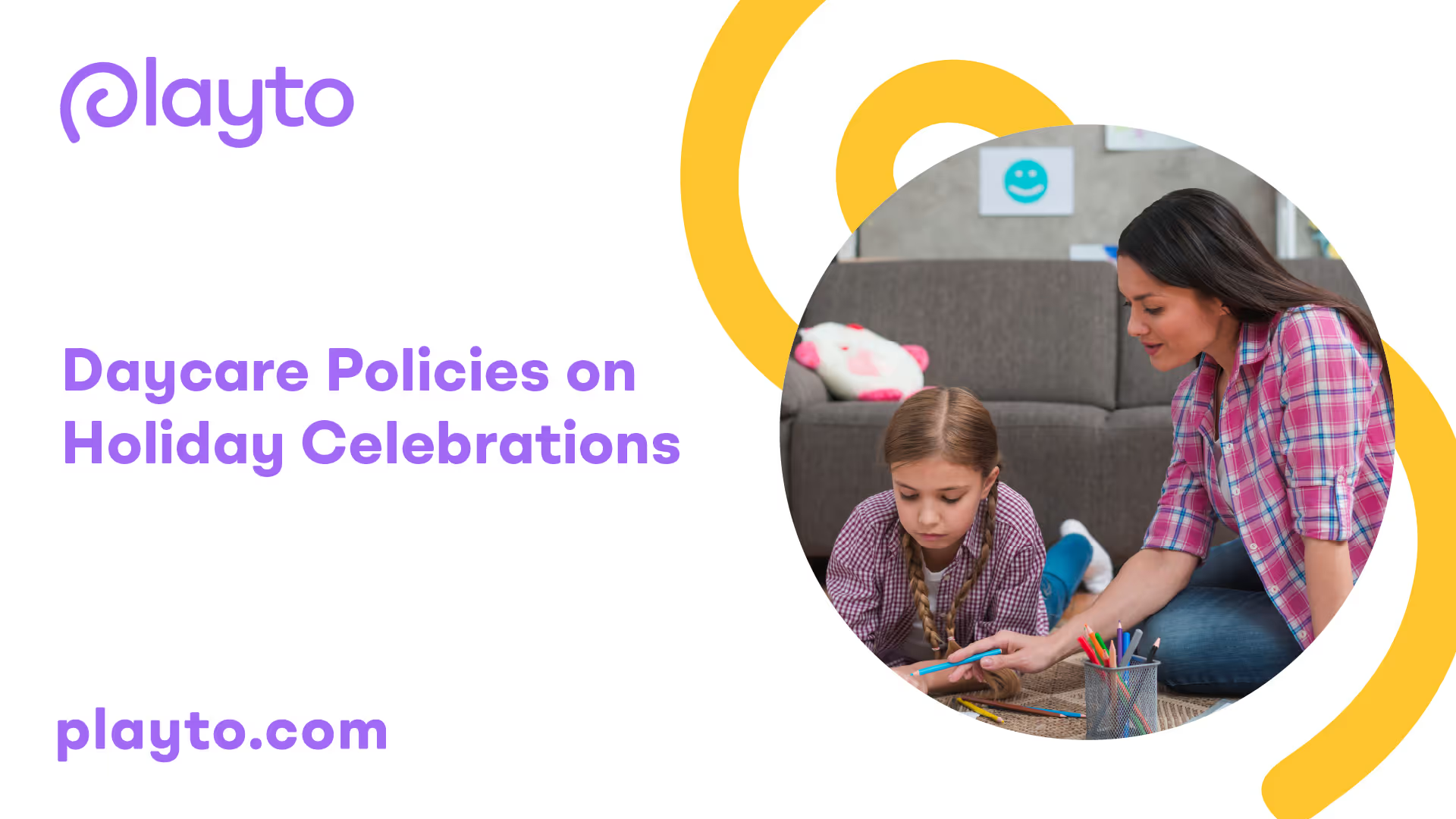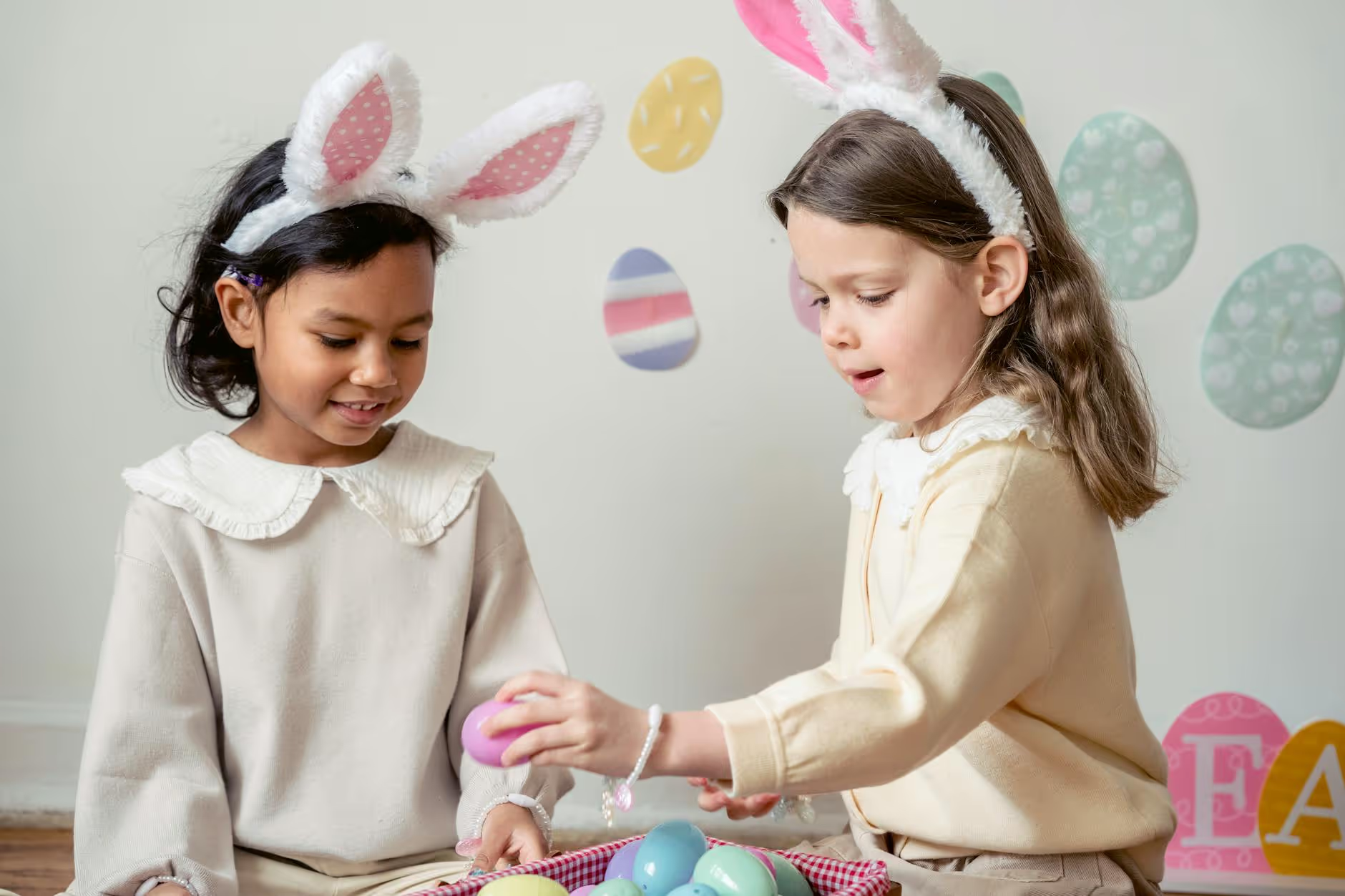
Understanding Holiday Celebrations
In the context of daycare policies, it is important to have a clear understanding of holiday celebrations and their significance. Daycare centers are responsible for creating inclusive environments that respect the diverse cultural backgrounds of the children and families they serve.
Importance of Holiday Policies
The establishment of comprehensive holiday policies in daycare centers is crucial for several reasons. First and foremost, these policies ensure that all children feel included and respected, regardless of their cultural or religious background. By promoting an inclusive environment, daycare centers foster a sense of belonging among children and their families.
Holiday policies also help to address concerns related to financial constraints and religious beliefs. For example, some families may not celebrate certain holidays due to religious reasons or personal beliefs. By implementing alternative activities or focusing on non-religious aspects of celebrations, daycare centers can create a more inclusive environment where all children feel comfortable and valued.
Cultural Significance of Holidays
Holidays play an important role in various cultures around the world. They provide an opportunity to teach children about different traditions and promote cultural diversity. Holidays such as Diwali, St. Nicholas Day, Hanukkah, Las Posadas, Christmas, Kwanzaa, Bodhi Day, and Eid-ul-Fitr are celebrated in different parts of the world and have become part of the American fabric. Incorporating these celebrations into daycare activities allows children to learn about and appreciate different cultures.
It is important to note that specific holidays and religious observances are not universal. Every culture commemorates beliefs, historical events, and people through special celebrations and holidays, which may differ from one another. Understanding the purpose and worldview underlying a holiday helps in deciding what role, if any, that holiday should play in an early childhood program [2].
Daycare centers should strive to respect and honor the holiday traditions of all families. Respecting family diversity means recognizing that all families have the right to their traditions and that the daycare program should not favor one category of families over another. It is crucial to avoid imposing the celebration of one group's holidays on all children and staff. Celebrating dominant culture holidays may not adequately respect cultural and religious diversity.
By understanding the importance of holiday policies and the cultural significance of holidays, daycare centers can create inclusive environments that celebrate diversity and promote understanding among children and their families. It is vital to respect all families' holiday traditions and their specific ways of celebrating or not celebrating, ensuring that no group's traditions are favored over others.

Holiday Policies in Childcare
When it comes to holiday celebrations in childcare settings, daycare policies play a crucial role in ensuring a safe and inclusive environment for all children. This section will focus on two important aspects of holiday policies: the policy on Halloween celebrations and compliance with regulations.
Policy on Halloween Celebrations
Halloween is a widely celebrated holiday that involves costumes and various traditions. However, some preschools may have policies against Halloween costumes for reasons such as financial constraints of parents and children from families with religions that do not allow holiday celebrations. In these cases, alternative activities may be implemented, such as dressing up as book characters paired with reading related books. This allows children to engage in imaginative play and celebrate in a way that is inclusive for all.
It is important for daycare centers to clearly communicate their policy on Halloween celebrations to parents and staff members. By providing alternative activities or guidelines for appropriate costumes, they can maintain an inclusive and respectful environment that accommodates diverse beliefs and cultural backgrounds.
Compliance with Regulations
Daycare centers are not only responsible for creating inclusive policies but also for complying with relevant regulations regarding holiday celebrations. For example, in the state of Indiana, child care centers are required to comply with the rules of the Family and Social Services Administration (FPBSC) under 675 IAC regarding holiday decorations and Christmas trees. It's essential for daycare centers to familiarize themselves with the specific regulations in their respective regions to ensure they meet all necessary requirements and maintain a safe environment for the children in their care.
By establishing clear policies on Halloween celebrations and adhering to applicable regulations, daycare centers can create a positive and inclusive environment for all children. These policies not only support the diverse beliefs and values of families but also ensure the safety and well-being of every child in their care.
To learn more about other daycare policies, such as those on parent involvement or celebrating birthdays, visit our articles on daycare policies on parent involvement and daycare policies on celebrating birthdays.

Ensuring Safety in Holiday Celebrations
When it comes to holiday celebrations in daycare settings, ensuring the safety of children is of utmost importance. Child care providers should take necessary precautions and implement safety measures to create a secure environment during these festive occasions. Two key aspects to consider are fire safety measures and risk prevention strategies.
Fire Safety Measures
Child care providers should be vigilant about fire safety during holiday celebrations. Holiday decorations, while creating a joyful atmosphere, can pose a risk if not used safely. According to Child Care Aware® of America, nearly half of holiday decoration fires occur because decorations are placed too close to a heat source. To minimize the risk of fires, child care providers should:
- Keep decorations, such as trees, away from heat sources like radiators, heaters, or open flames.
- Ensure that electrical decorations are in good condition and do not have exposed wires or frayed cords.
- Use flameless candles or keep traditional candles out of reach of children.
- Teach children about fire safety, emphasizing the importance of not touching or playing with candles or electrical decorations.
By implementing these fire safety measures, child care providers can create a safe and festive environment for holiday celebrations.
Risk Prevention Strategies
In addition to fire safety, child care providers should also take steps to prevent other potential risks during holiday celebrations. Some risk prevention strategies to consider include:
- Supervision: Ensure that there is adequate supervision during holiday activities to prevent accidents and injuries. Assign staff members to monitor children closely, particularly when engaging in activities that may involve potential hazards, such as art projects or cooking activities.
- Age-appropriate activities: Tailor holiday activities to suit the age and developmental level of the children. Avoid activities that may involve small parts or choking hazards for younger children.
- Allergen awareness: Be mindful of any allergies among the children and their families. Take precautions to avoid allergens, such as nuts or certain food ingredients, during holiday celebrations.
- Safe decorations: Use child-friendly and non-toxic decorations. Avoid decorations that may be easily broken or have sharp edges that could cause injuries.
By carefully considering these risk prevention strategies, child care providers can create a safe and inclusive environment for children to enjoy holiday celebrations.
To learn more about daycare policies on various topics, such as parent involvement, photography and social media, celebrating birthdays, parent-teacher conferences, outdoor play, and dealing with sick children, you can visit our articles on daycare policies.
Promoting Cultural Diversity
In a diverse daycare setting, promoting cultural diversity is crucial to creating an inclusive and respectful environment for all children. Teaching cultural traditions and respecting family diversity are key components of daycare policies that aim to celebrate and honor the various cultures and traditions represented within the community.
Teaching Cultural Traditions
Holidays such as Diwali, St. Nicholas Day, Hanukkah, Las Posadas, Christmas, Kwanzaa, Bodhi Day, and Eid-ul-Fitr are celebrated in various parts of the world and have become part of the American fabric, providing an opportunity to teach children about different cultures and traditions [1]. By incorporating these celebrations into the daycare curriculum, children can gain a deeper understanding and appreciation for the diverse beliefs and practices of their peers.
Teaching cultural traditions involves exploring the historical and cultural significance of each holiday. Educators can incorporate age-appropriate activities, stories, crafts, and songs that highlight the traditions associated with these holidays. This approach fosters empathy, respect, and understanding among children from different backgrounds, creating a sense of unity and appreciating the richness of diversity.
Respecting Family Diversity
It is essential to respect the diverse beliefs and traditions of all families within the daycare community. Recognizing that specific holidays and religious observances are not universal, daycare policies should aim to create an inclusive environment that values and respects family diversity [2]. This means avoiding favoritism towards any particular category of families and ensuring that the program does not impose celebrating dominant culture holidays on all children and staff.
Secularized or commercialized versions of holidays are not culturally or religiously neutral. Respecting family diversity means acknowledging that all families have the right to their own traditions and that the daycare program should not prioritize one group over another [2]. By understanding the purpose and worldview underlying each holiday, daycare providers can make informed decisions about the role, if any, that specific holidays should play in the program.
Emphasizing the learning and understanding of each other's family holidays, rather than celebrating them, can engage children in exploring and appreciating different holiday meanings and traditions. This approach allows for a respectful exploration of diverse cultures without imposing any particular beliefs or practices on children and families. It is important to ensure that all families' holiday traditions are respected, including their specific ways of celebrating or not celebrating.
By incorporating teaching cultural traditions and respecting family diversity into daycare policies, early childhood programs can create an environment that values and celebrates the unique backgrounds and traditions of every child and family. This approach fosters inclusivity, respect, and a sense of belonging, promoting the growth and development of children in a culturally diverse world.
Inclusivity in Holiday Activities
When it comes to holiday activities in daycare centers, it's essential to prioritize inclusivity and respect for all children and families. This section focuses on two crucial aspects of creating inclusive holiday activities: language considerations and teaching inclusiveness.
Language Considerations
Language plays a vital role in fostering inclusivity during holiday activities. It's important to be mindful of the language used to describe and discuss holidays, especially those rooted in specific faiths or historic events. Using language that is neutral and inclusive allows children to learn about different holiday traditions without promoting one over others.
When planning holiday activities, educators should be cautious not to impose celebrating the holidays of one particular group on all children and staff. Instead, language choices should support the concept of religious diversity and respect each family's freedom of choice. This approach helps create an inclusive environment where all children feel valued and represented [2].
Teaching Inclusiveness
Inclusive holiday activities provide opportunities for children to learn about and appreciate the diversity of cultures and traditions. Instead of solely focusing on celebrating specific holidays, educators can emphasize learning about each other's family holidays. This approach engages children in understanding the different meanings and traditions associated with various holidays without favoring one category of families over another.
Teaching inclusiveness during holiday activities involves creating a safe and respectful space for children to share their own family traditions and learn from others. Educators can facilitate discussions, stories, and presentations that highlight the unique holiday experiences of different families. By doing so, children gain a broader understanding of cultural diversity and develop empathy and respect for their peers [2].
Inclusivity can also be promoted by incorporating activities that focus on the similarities and shared values among different holiday traditions. For example, highlighting themes such as love, kindness, and giving can help children recognize the universal aspects of various celebrations. This approach encourages children to appreciate the richness of diversity while fostering a sense of unity and respect within the daycare setting.
By paying attention to language choices and teaching inclusiveness, daycare centers can create holiday activities that embrace the diversity of their children and families. Through these inclusive practices, children develop a deeper understanding and appreciation for different cultures and traditions, promoting a positive and inclusive learning environment.
Celebrating Diversity Year-round
In an inclusive daycare environment, it's important to celebrate diversity throughout the year, rather than focusing solely on holiday celebrations. By integrating diversity into daily activities and involving families, daycare centers can foster an inclusive and respectful atmosphere.
Integration of Diversity
Childcare providers should emphasize the acceptance and value of every person from all backgrounds. This can be done by helping children identify common bonds that children of all cultures share, such as family, foods, music, languages, and art. By highlighting these similarities, children can develop a sense of unity and appreciation for diversity. Families also play a crucial role in teaching children about cultural similarities and differences, making them a valuable resource in promoting diversity.
It's essential to recognize, respect, and celebrate diversity throughout the year, not just during specific seasons. While the holiday season provides an opportunity for children to share their family's holiday traditions and learn about others' traditions, educators should ensure that diversity is celebrated year-round. This approach helps children understand the value of different cultures and promotes an inclusive environment.
Family Involvement in Education
To create an inclusive environment, daycare centers should actively involve families in their child's education and celebrate their traditions. By inviting families to share their cultural practices, traditions, and celebrations, children gain a deeper understanding of the diverse world around them. This involvement can take the form of family presentations, storytelling, or sharing traditional foods and artifacts. By valuing and respecting the traditions of all families, daycare centers promote cultural diversity and create a sense of belonging for each child.
Furthermore, educators should be mindful of the language used in holiday activities to ensure that religious diversity is respected. Language choices should support the concept of religious diversity and each family's freedom of choice. By using inclusive language, children can learn about, rather than celebrate, holidays grounded in specific faiths or historic events. This approach allows children to develop an understanding and appreciation for different beliefs and traditions.
By integrating diversity into daily activities and involving families, daycare centers can create an environment that celebrates and respects the unique backgrounds and traditions of each child. Emphasizing the value of diversity throughout the year helps children develop empathy, respect, and appreciation for all cultures, promoting a sense of inclusion and unity.
References
- [1]: https://info.ezchildtrack.com/blog/celebrating-multicultural-holidays-in-childcare
- [2]: https://www.naeyc.org/resources/blog/anti-bias-and-holiday
- [3]: https://community.babycenter.com/
- [4]: https://casetext.com/regulation/
- [5]: https://childwatch.com/blog/use-the-holidays-to-help-children-celebrate-diversity/
